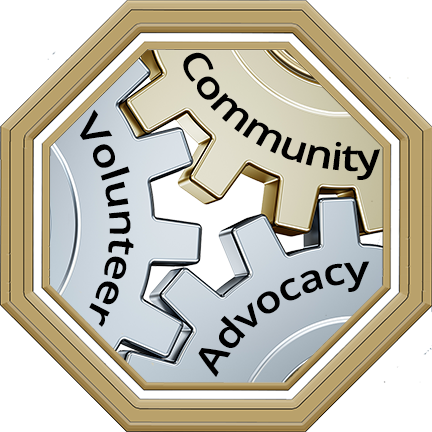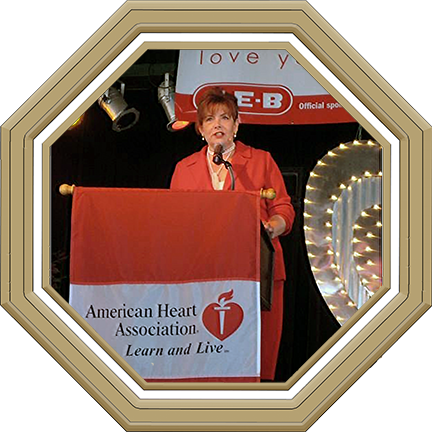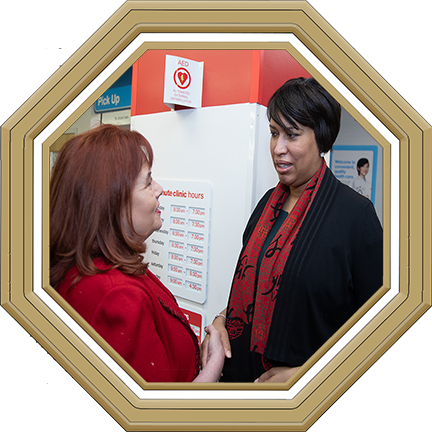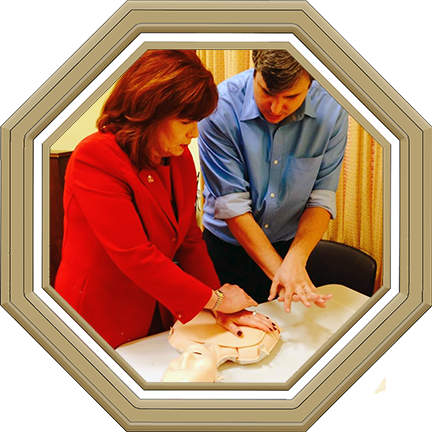WHG is founded on a strong commitment of giving back to the Community - Volunteerism - Advocacy.Patients with rare and chronic disorders, face many medical, provider and health plan challenges. The path from clinical diagnosis to treatment may be medically linear, however for patients their families and caregivers, the actualization of accessing care, understanding covered benefits and financial burdens can be problematic.
The responsibility of understanding and subsequent decision-making for medical care, access to care, interpreting coverage and committing to financial burdens can be daunting and support mechanisms are not always intuitive or readily available.
|
Not For-Profit Comunity Resources
Many not for-profit organizations are founded and dedicated to providing resources to help patients and family members fill in knowledge gaps and aid in some of the decision making processes.
Deb Wells found herself in the middle of this knowledge and resource gap conundrum while working with Medicaid families in Texas as the Chief Operating Officer of a Medicaid Managed Care Plan. Because of Deb’s involvement with oversight of some of the linear provider and health plan processes, she was invited to join the Board of Directors of Any Baby Can, a 501(c)(3) Corporation based in San Antonio, Texas. Any Baby Can is dedicated to helping children with rare and chronic illnesses and their families fill in some of these knowledge and resource gaps.
Deb’s personal and thirty plus year’s healthcare industry experience allows her to provided a unique perspective to patients and their families with rare and chronic disorders and drives her passion for community involvement.
Challenges Facing Patients and Families With Rare and Chronic Disorders
Some of the more intimidating and discouraging knowledge gaps include but are not limited to:
- Understanding in-network vs. out-of-network providers and the consequences.
- Covered vs. non-covered benefits and a health plans possible exception to benefits discretion.
- The rising costs of copays, deductibles and other reimbursement issues are part of the ever growing concern affecting family dynamics for patients with rare and chronic disorders.
- Access to alternative and supplemental financial resources like pharmaceutical copay assistance programs.
- These family challenges along with the need for more individualized education for family members and caregivers are just a few of the services that these organizations can provide to help make a difference.
|
As a stroke survivor, Deb Wells co-founded StrokeGuard, a multidisciplinary care management program for the various risk factors associated with stroke. Atrial Fibrillation, diabetes, obesity, family history, high blood pressure or high cholesterol are among a few areas of focus for prevention. Awareness and education for clinicians, patients and caregivers focused on understanding how these various risk factors intersect in StrokeGuard’s proprietary algorithm.
The San Antonio Business Journal annually honors people who have made an impact on health care in the community through their concern for patients, their research and inventions, their management skills, their innovative programs for employees and their services. In 2009 the San Antonio Business Journal recognized Deb and honored her as a “Healthcare Hero” for her work in the community as a healthcare advocate.
|
American Heart Association
|
The American Heart Association tapped into Deb’s personal experience with stroke and the placement of a pacemaker to manage her sick sinus syndrome. Deb Wells has been the keynote speaker for Go Red for Women® luncheons and became a regular, frequent speaker for advocacy appeals in San Antonio and now Washington DC.
Deb was nominated to join the Women’s Board of the American Heart Association of the Greater Washington Area in 2018. The Women’s Board sponsors the "An Affair of the Heart" Luncheon and Fashion Show to raise funds aimed at reducing death and disability from heart disease and stroke. This event is one of the oldest annual fund-raising events of any nationally recognized non-profit group and is a highly anticipated Washington event, spanning over seven decades.
|
|
Deb has participated in numerous events and written a blog post telling her story so that others may learn what they should ask their doctor about “their numbers.” From Million Hearts® to talks on Capitol Hill, teaching CPR to staffers, she has offered personal expertise for reducing and managing risk for men and women and heart disease and stroke.
Deb has become an expert at assessing the value of reimbursement options when a variety of modalities are evolving in today’s quality outcome, cost contained environment. In addition to Stroke and Heart Disease, Wells is a consultant for Specialty Pharmacy, Home Infusion Therapy, and Home Health nursing options for both private health insurance as well as government payers. The unique nuances from fee for service to capitation and other value-based programs are important and difficult to discern.
|
Innovation has its challenges – when FDA clearance allows a new drug or device entry, navigating through CMS coverage coding and payment is a second hurdle. Producing payer-driven criteria to assimilate access to market for the right patient quickly requires a targeted approach.




